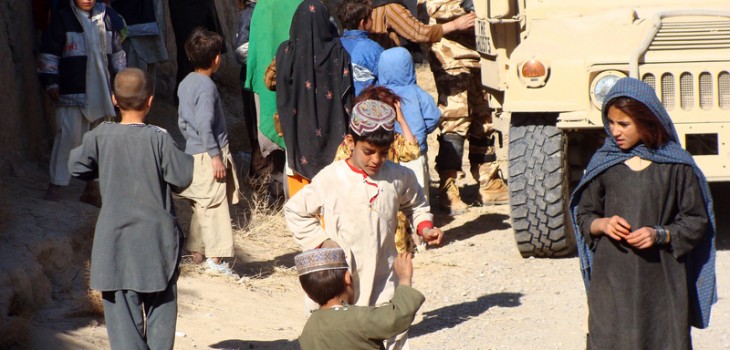By Karl Blanchet
When we talk about fragile states, we could cover the usual alarming figures: it is anticipated that by 2015, half of the world’s population living in poverty will be in fragile states. Similarly, while poverty continues to decline globally, fragile states still grapple with alarmingly poor economic indicators. Only 7 of the 47 fragile states benefit from significant international aid funding; 57% of all countries that experienced civil war between 1945 and 2009 have suffered at least one conflict thereafter, while economic recovery can take a generation or more before a country is able to reach the prewar standard of living.
Despite this, it remains pertinent to ask whether fragile states should be characterised by these depressing figures. By categorising and black listing these countries, have we caused more harm than good?
We must revisit the definition of a fragile state and cease to focus on the seemingly arbitrary classification of countries. Fragility is a dynamic and multidimensional concept. Fragility varies by nature and degree from one country to another; there is little in common between Afghanistan and Togo, or between Haiti and Chad. The concept of fragility must be revisited, and the real nature of fragility must be assessed in order to identify context-appropriate solutions.
Fragility is an inherently negative concept and should be avoided. It does not encompass many of the positive changes taking place in these countries. Instead I prefer to consider resilience, defined as the capacity of systems to adapt to shocks. There is a need to recognise the positive innovations and developments that are widespread in many post-conflict and post-disaster countries. Post-conflict Cambodia in the 1990s had only 50 medical doctors. Post-conflict Liberia had 15. The challenges faced by these countries were tremendous. However, today both Cambodia and Liberia continue to see improvements in many of their health indicators, and the population is generally much better off in both economic and health terms. In Myanmar, the transition from a military regime to a quasi-civil government represents a window of opportunity to reform the health system and increase international investments in a sector that has been underfunded for decades in this country (as discussed by Risso-Gill et al. in a paper recently published in Health Policy and Planning).
The reconstruction process that has taken place in these countries is particularly innovative and can serve as a model for other countries. For example, the contracting-out approach tested in Cambodia, and later in Afghanistan, has produced very positive results. Countries have also tested pioneering task shifting approaches. In Sierra Leone, for example, nurses were trained to conduct cataract surgery in response to a deficit of doctors. In South Sudan many health policies have been written, and most of them have been developed based on evidence. Following the 2010 earthquake in Haiti, the country was able to build a solid network of physical rehabilitation services as developed during the initial emergency phase.
These initiatives and innovations should act as a focus for researchers, allowing us to better understand programmes that can bolster the resilience of individual health systems. To this end, I always keep in mind that a year after the Second World War began, post-war reconstruction planning was underway, and a blueprint for a National Health Service in the UK was under review.
Dr Karl Blanchet is a Lecturer in Health Systems Research at the London School of Hygiene and Tropical Medicine.
Further reading:
OECD: http://www.oecd.org/dac/incaf/resourceflowstofragilestates.htm
Public Health in Humanitarian Crises Group: http://crises.lshtm.ac.uk
Health system strengthening in Myanmar during political reforms: http://heapol.oxfordjournals.org/content/early/2013/06/06/heapol.czt037.full?sid=e0c927df-2c04-425e-8b41-e741c7c3a266











